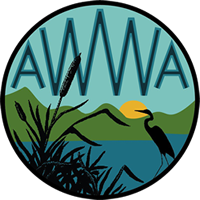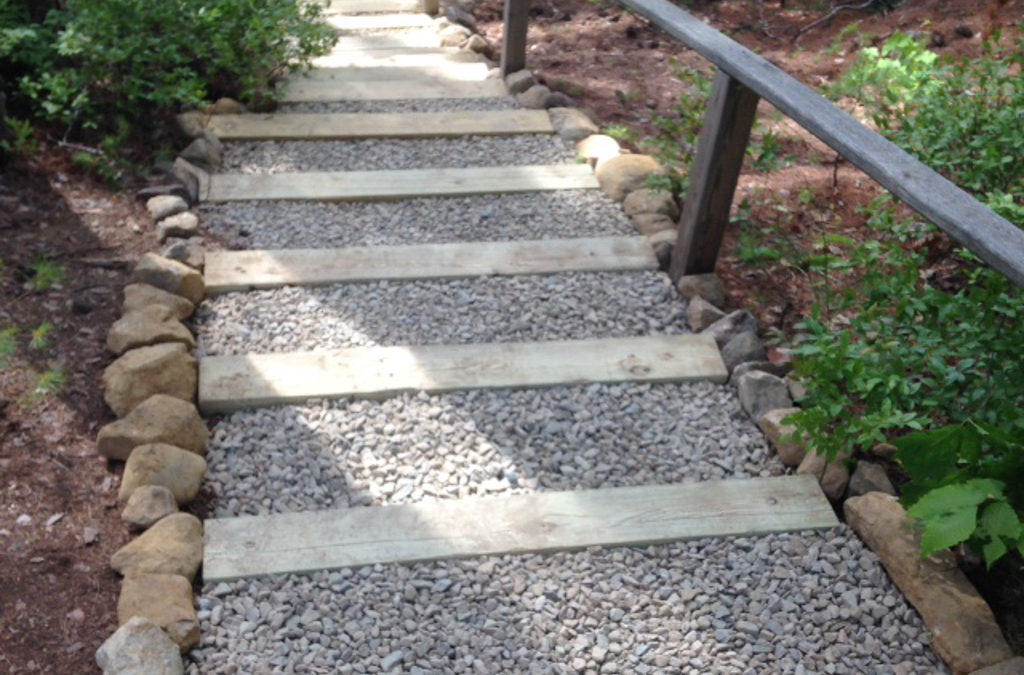
by Rich Collins | Mar 24, 2019 | Best Management Practices
Retrofitted Infiltration Steps Retrofitting steps to control erosion on paths. Purpose: Infiltration steps use crushed stone to slow down and infiltrate runoff. They are effective on moderate slopes, but consider building wooden stairways on 1:1 slopes (45°) or areas...
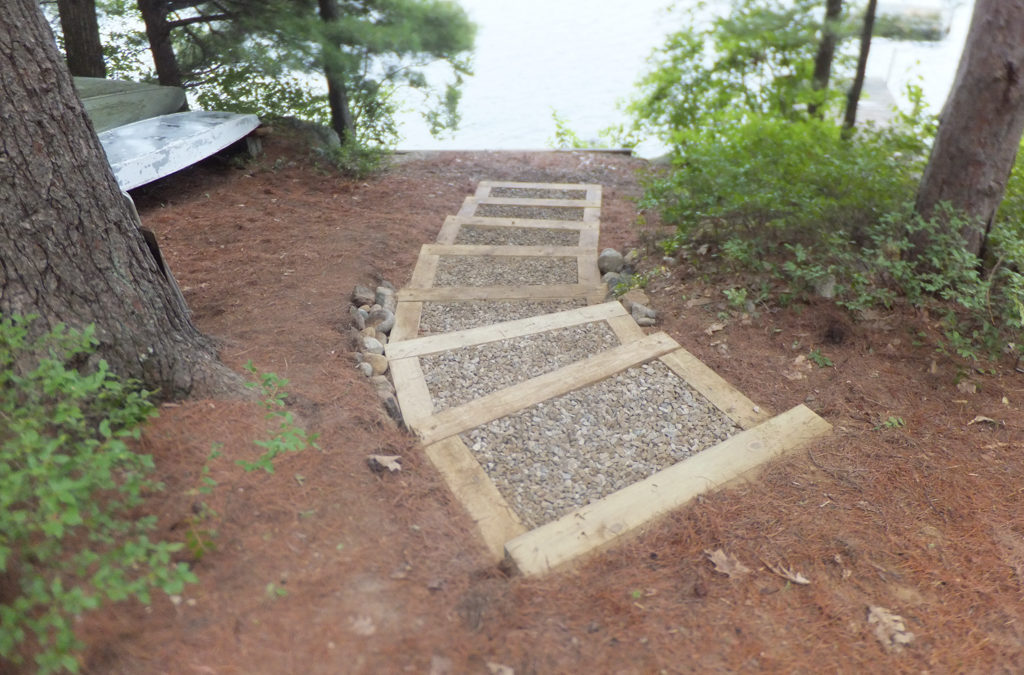
by Rich Collins | Mar 19, 2019 | Best Management Practices
Infiltration StepsControlling erosion on steep paths. Purpose: Infiltration steps use crushed stone to slow down and infiltrate runoff. They are effective on moderate slopes, but consider building wooden stairways on 1:1 slopes (45°) or areas where rocks or surface...
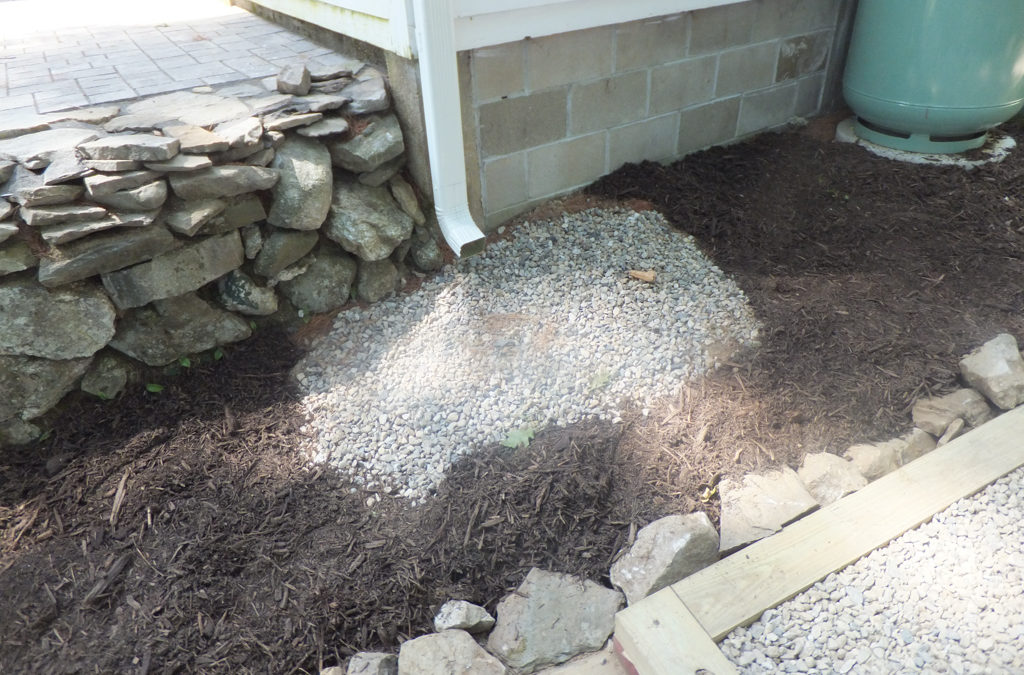
by Rich Collins | Mar 1, 2019 | Best Management Practices
Drywells and Detention Basins Purpose: Drywells collect and infiltrate runoff at gutter downspouts, and detention basins work great where large quantities of concentrated water flow off rooftops. These systems help control erosive runoff on your property, and reduce...
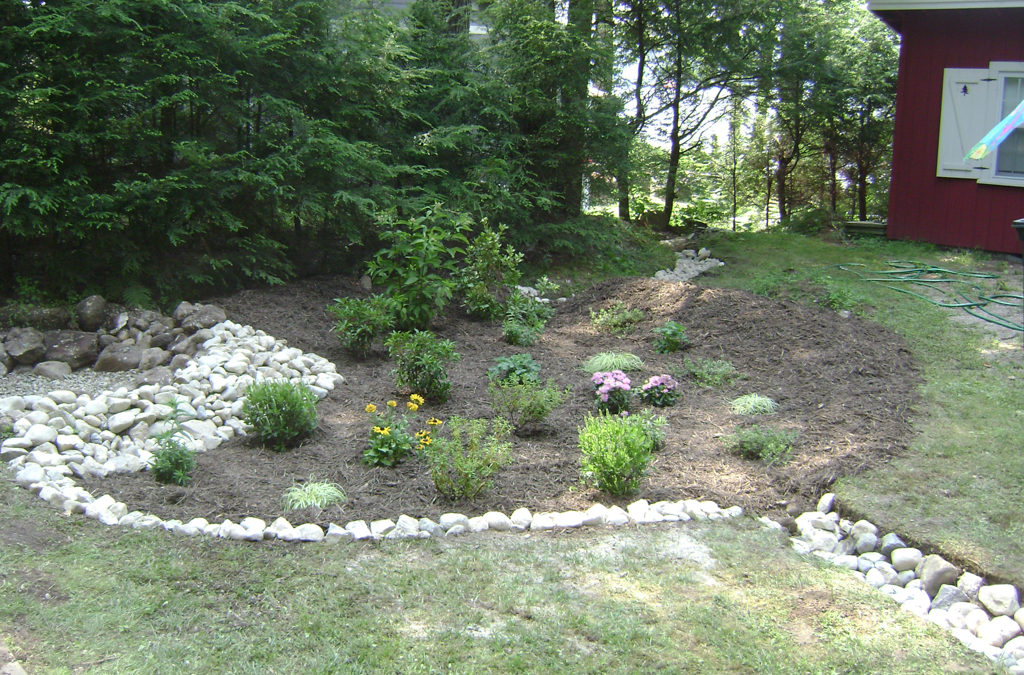
by Rich Collins | Feb 21, 2019 | Best Management Practices
Rain Gardens Managing roof runoff in your backyard Purpose: Rain gardens are attractive and functional landscaped areas that are designed to capture and filter stormwater from roofs, driveways, and other hard surfaces. They collect water in bowl- shaped, vegetated...
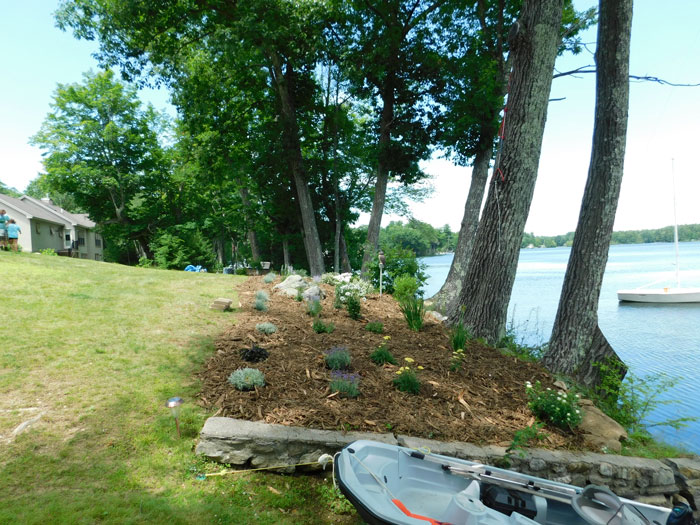
by Rich Collins | Feb 17, 2019 | Best Management Practices
Vegetated Buffers Using vegetation to protect water quality. Purpose: Vegetated buffers are trees, shrubs and groundcover plants that catch sediment and other pollution before it reaches lakes or streams. Trees and shrubs intercept raindrops and reduce their impact on...
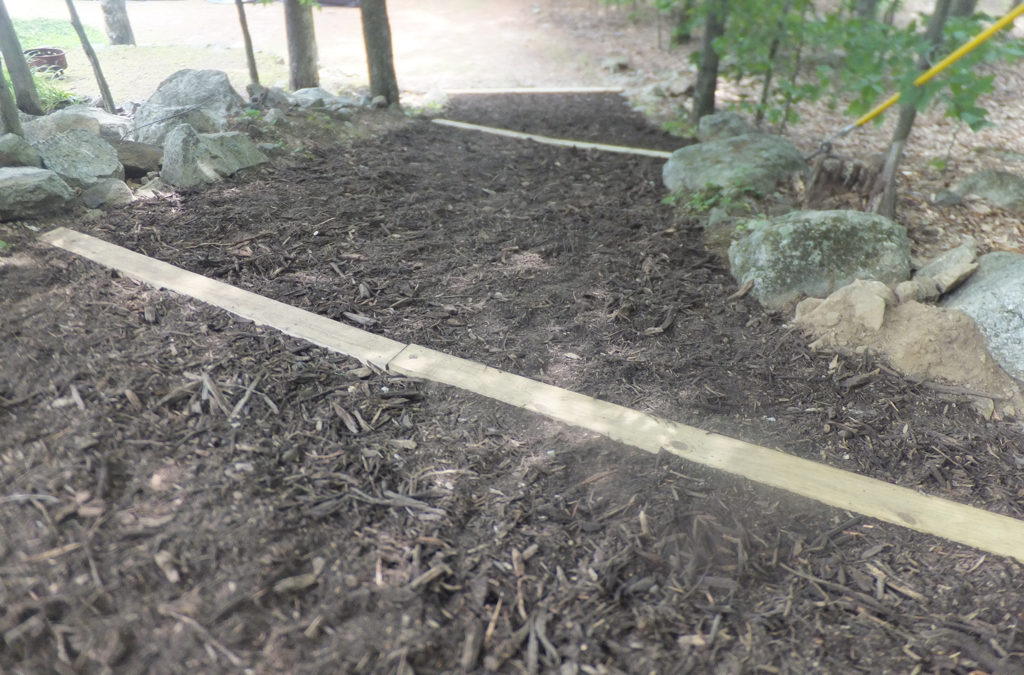
by Rich Collins | Feb 8, 2019 | Best Management Practices
Erosion Control Mix (ECM)Mulching to stabilize and enrich the soil. Also Called: ECM, Slope Stabilizer, Erosion Control Mulch, SuperhumusTM, Wood Waste, Stump Grindings. Purpose: Erosion Control Mix (ECM) is a kind of mulch made of partially composted bark, sand,...







